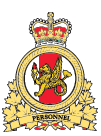Book Reviews

Book Cover – Escape, Evasion and Revenge
Escape, Evasion and Revenge: The True Story of a German-Jewish RAF Pilot Who Bombed Berlin and Became a POW
by Marc H. Stevens
Barnsley, South Yorkshire: Pen & Sword Books, 2011
223 pages, £12.99 paper
ISBN: 1-84884-554-5
For more information on accessing this file, please visit our help page.
Reviewed by Jonathan F. Vance
While researching a book on the Great Escape years ago, I occasionally came across the name Peter Stevens in memoirs and interviews. There were mentions that he was actually a German Jew serving in the RAF under an assumed name, but no hard evidence that this was anything but a presumption. Not until I read Marc Steven’s fascinating biography of his father did I learn the full story.
And it is a remarkable story. Peter Stevens was born Georg Heil, the son of a prosperous Jewish publisher in Hanover whose premature death put the family into a downward spiral. Financial problems and the persecution of German Jews convinced Frau Heil to send her three children to England and safety. Then, with the family’s savings exhausted and the window for immigration firmly closed, she quietly took her own life. Georg eventually joined the RAF (using the name of a dead schoolmate), trained as a pilot, and did something that might have been unique: he bombed the city in which he had been born and raised. Shot down and captured in September 1941, Heil (as Peter Stevens) spent almost four years in captivity, his true identity a secret to all but his closest confidantes.
Much of this pre-1939 history was unknown to the family that Stevens raised in Montreal after the war (he had emigrated to Canada to work with the Canadian subsidiary of the Bristol Aeroplane Company, and joined 401 Squadron RCAF Reserve because he missed the camaraderie of the air force), and remained hidden from Marc Stevens until after his father’s death. As a biographer, then, he faced unusual challenges. He had to capture the life of a man he thought he knew, but whose most formative experiences were largely a mystery to him.
So much could have gone wrong with a biography written on these terms, but Marc Stevens has succeeded admirably. This is not a rose-tinted hagiography by an awe-struck son; rather, it is judicious and even-handed – “warts and all,” to use the cliché. Stevens was a remarkable man, but in some ways, not a very likeable man. He stole, and then wasted, the last of his mother’s money, which had been sent to Britain to establish the three children. When that money was gone, he dabbled in petty crime and eventually landed in jail after being convicted of theft. Furthermore, he was a cold and distant husband and father, unable to display emotional attachment or even relate to others on terms of affection.
But he was never short on courage, and here the depth of the author’s research helps him to recreate the very difficult early days of Bomber Command, when accuracy was low, casualties were high, and air crew were overworked. Stevens and his crew once flew five operations in nine nights. A fine pilot, Stevens once brought his Hampden bomber home on one engine and without functioning flaps or undercarriage, saving the lives of badly wounded crewmen. And although it would have been much safer to sit quietly in captivity and avoid drawing attention to himself, Stevens became an inveterate escaper, exploits that earned him the Military Cross after the war. This is a wartime career that would make any son proud, but Stevens’ real triumph is in writing a biography that will satisfy the most discerning historian.
Jonathan F. Vance, PhD, is Distinguished University Professor in History at Western University in London, Ontario.







